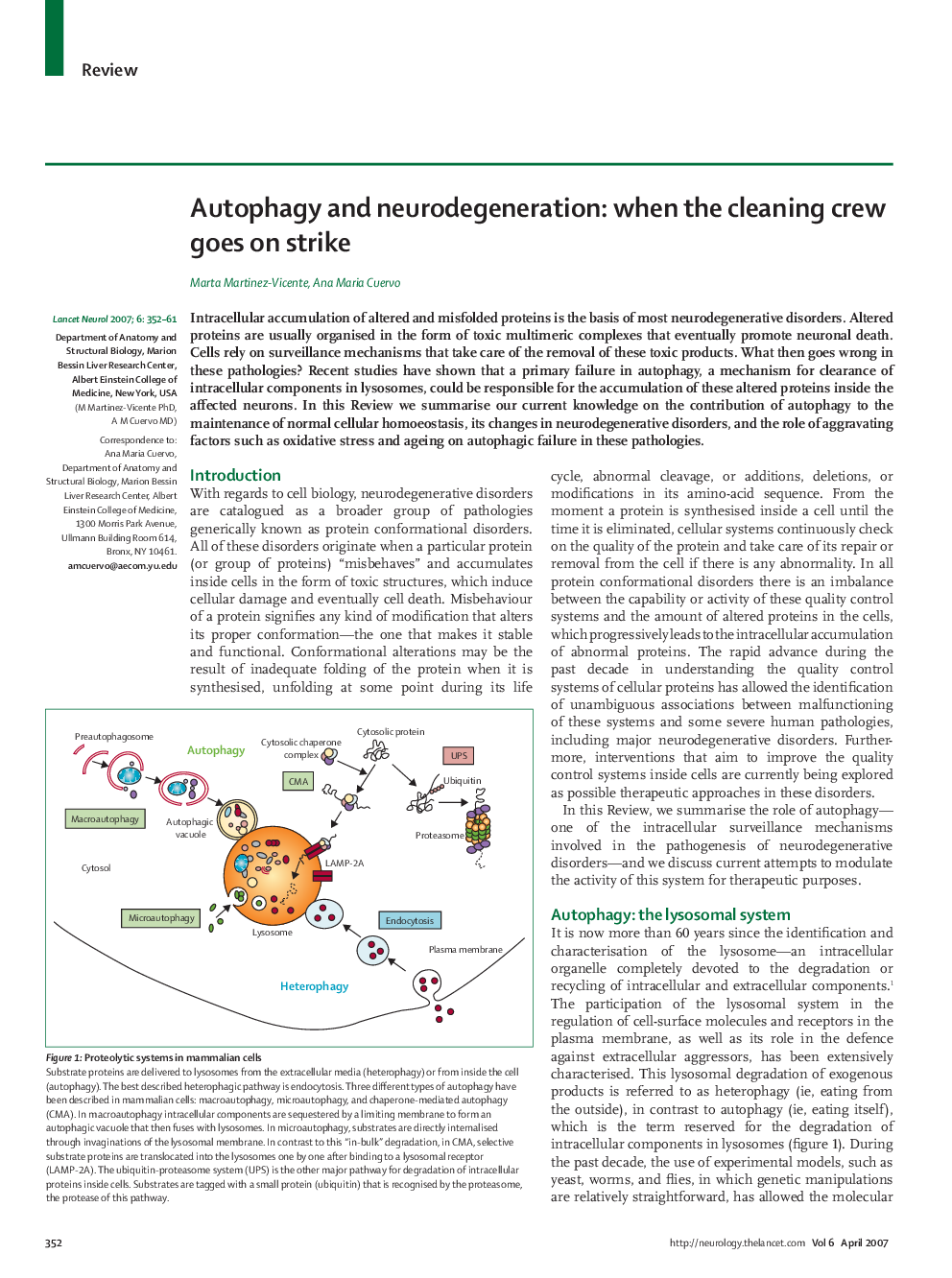| Article ID | Journal | Published Year | Pages | File Type |
|---|---|---|---|---|
| 3067791 | The Lancet Neurology | 2007 | 10 Pages |
SummaryIntracellular accumulation of altered and misfolded proteins is the basis of most neurodegenerative disorders. Altered proteins are usually organised in the form of toxic multimeric complexes that eventually promote neuronal death. Cells rely on surveillance mechanisms that take care of the removal of these toxic products. What then goes wrong in these pathologies? Recent studies have shown that a primary failure in autophagy, a mechanism for clearance of intracellular components in lysosomes, could be responsible for the accumulation of these altered proteins inside the affected neurons. In this Review we summarise our current knowledge on the contribution of autophagy to the maintenance of normal cellular homoeostasis, its changes in neurodegenerative disorders, and the role of aggravating factors such as oxidative stress and ageing on autophagic failure in these pathologies.
